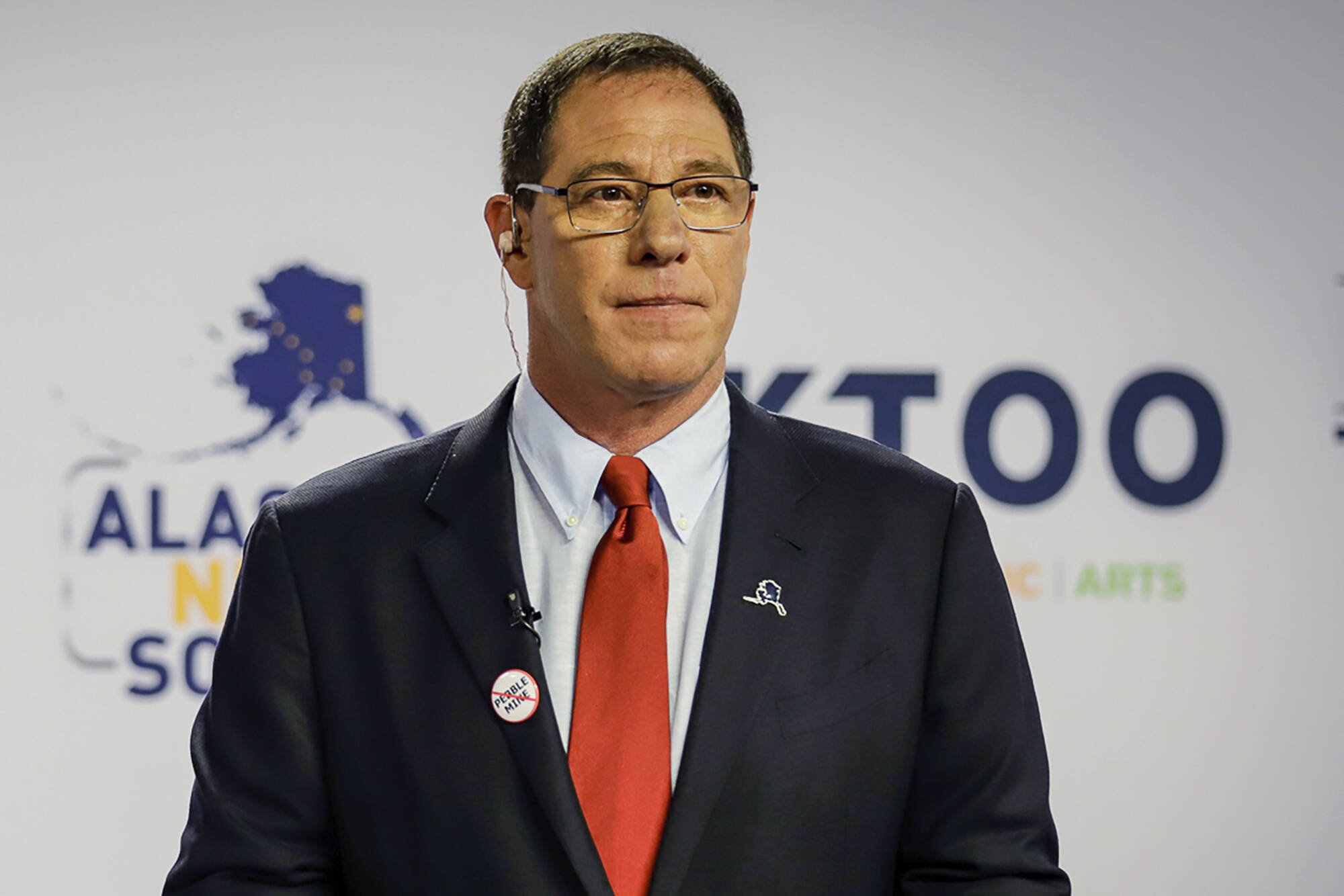By Becky Bohrer
Associated Press
JUNEAU — Al Gross, an independent running for Alaska’s only U.S. House seat, said late Monday that he is ending his campaign after a top finish in this month’s special primary.
Gross in a statement said it was “with great hope for Alaska’s future” that he has decided to end his campaign. He said there are two “outstanding Alaska Native women in this race who would both serve our state well, and I encourage my supporters to stay engaged and consider giving their first-place vote to whichever of them best matches their own values.”
His campaign said he was referring to Democrat Mary Peltola, a former state lawmaker from Bethel, and Republican Tara Sweeney, who was assistant secretary of Indian Affairs in the U.S. Interior Department during the Trump administration.
Peltola was in fourth place in the June 11 special primary and Sweeney was in fifth. The top four vote-getters in the special primary are to advance to a special election in August in which ranked choice voting will be used.
State elections officials plan to finish counting ballots from the special primary on Tuesday and to certify the race results by Saturday. Gross was in third, behind former Gov. Sarah Palin and businessman Nick Begich, both Republicans.
Gross’ campaign said he is not doing interviews at this time.
Gross’ announcement comes days after his campaign touted the endorsement of an electrical workers union and posted fundraising appeals on social media that took swipes at Palin. One such video post featured the word “quitter” over Palin’s face. Palin resigned as governor in 2009, partway through her term.
Hours before the announcement, Gross’ campaign posted a picture of him at a brewing company in Anchorage over the weekend.
The Monday evening statement said Gross is withdrawing from the special election and from the regular election. Peltola and Sweeney have both filed to run for the August regular primary.
Just last week, Sweeney issued a statement saying her goal was to finish in the top four and that it appeared she would “fall just short.” She said she had planned to meet with advisers and supporters to determine “next steps.”
Messages seeking comment on Gross’ announcement were sent to the campaigns of Peltola and Sweeney.
The deadline to withdraw as a candidate for the regular primary is Saturday. The deadline to withdraw as a candidate for the special election is noon on Sunday.
Tiffany Montemayor, a spokesperson with the Alaska Division of Elections, was asked if the fifth place finisher in the special primary would be moved to fourth if Gross withdraws by the deadline. She said the division was “looking into this” and she did not have an immediate answer.
The House seat became vacant in March, when Republican Rep. Don Young died. Young had held the seat for 49 years.
Forty-eight candidates ran in the special primary, which was the first election under a system approved by voters that ends party primaries and implements ranked choice voting in general elections.
Most of those running in the special primary reported no fundraising to the Federal Election Commission. But Gross reported receiving about $545,000 between March 23 and May 22, about $86,000 less than Palin over roughly the same period.
The person who wins the special election will fill the remainder of Young’s term, ending in January. The August regular primary and November general election will decide who serves a regular two-year term, starting in January.
Gross, an orthopedic surgeon, unsuccessfully ran for the U.S. Senate in 2020 with the endorsement of state Democrats.
But in the House special primary, Alaska Democratic party leaders urged voters to pick from among the six Democrats running.
The party, in a social media post, had referred to Gross as “pandering” after Gross in a newspaper interview did not commit to caucusing with Democrats if elected. Gross later said he would.

